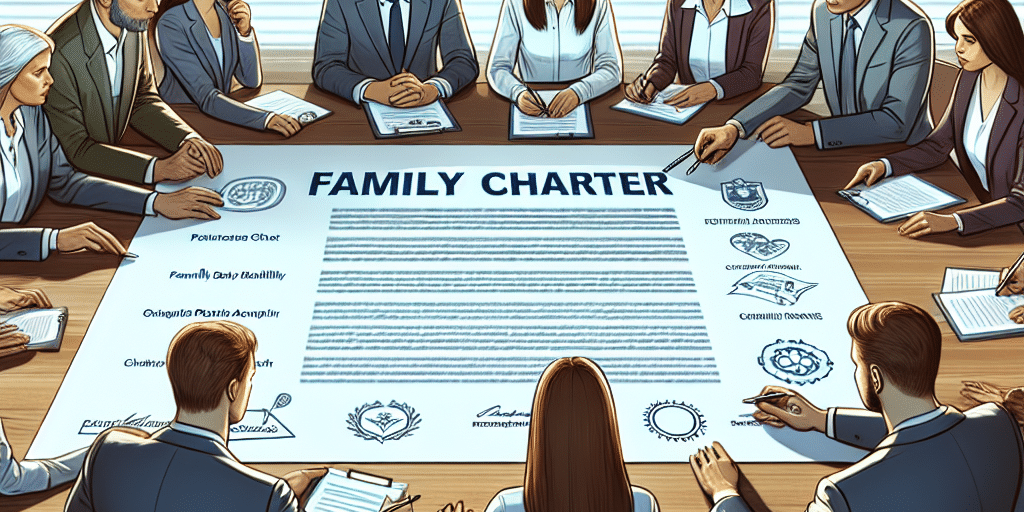As families amass wealth across generations, the need for effective governance becomes essential. A family office serves as a central hub for managing a family’s wealth, investments, and affairs. However, without a clear structure and accountability mechanisms, these offices can face challenges such as conflicts, miscommunication, and a lack of direction. One powerful tool to promote harmony and clarity is the Family Charter.
What is a Family Charter?
A Family Charter is a formal document that outlines the values, vision, governance policies, and operational guidelines for a family office. It serves as a blueprint for decision-making and conflict resolution, creating a framework within which family members can operate. Think of it as a constitution for the family that encompasses shared beliefs and outlines the responsibilities of each family member involved in the office.
Key Elements of a Family Charter
Mission and Vision Statements: Defining the family’s purpose and aspirations helps align the family’s goals and objectives. These statements provide a sense of direction and significance, ensuring everyone is on the same page.
Values and Principles: A clearly articulated set of values guides the family’s decisions and behaviors. These values can cover aspects such as philanthropy, investments, and personal conduct, fostering a culture of accountability.
Governance Structure: This section outlines the organizational framework for the family office, including roles, responsibilities, and decision-making processes. Establishing roles can help minimize conflicts and ensures that everyone understands their contribution.
Conflict Resolution Mechanisms: Disagreements are inevitable in any family dynamic. A Family Charter should stipulate how conflicts will be resolved, whether through mediation, family meetings, or another agreed-upon process.
Succession Planning: Addressing how wealth and responsibilities will be transferred to the next generation is crucial. A Family Charter can outline the criteria for leadership roles and the process for succession, ensuring a smooth transition.
- Communication Protocols: Establishing clear communication pathways is vital for maintaining transparency and trust. The Charter should define how frequently family meetings will take place, what topics will be discussed, and how information will be shared.
The Role of Accountability in a Family Charter
Accountability is the backbone of a successful family office. A Family Charter enhances accountability by:
Setting Clear Expectations: By defining roles and responsibilities within the Family Charter, family members can avoid ambiguities and understand what is expected of them. This clarity minimizes misunderstandings and encourages each member to fulfill their duties.
Encouraging Participation: A well-structured Family Charter invites active participation from all family members. When individuals feel their voices are valued, they are more likely to hold themselves and others accountable.
Creating a Framework for Decision-Making: The governance structure outlined in the Charter allows family members to make informed decisions that align with the family’s goals. With established processes, accountability is reinforced, as decisions can be traced back to the collective agreement.
Building Trust: Open communication and documented expectations cultivate an environment of trust. When family members trust in the processes set forth, they are more likely to engage constructively, thereby enhancing accountability.
- Facilitating Audits and Reviews: Regular assessments of the family office’s operations against the Charter can keep everyone in check. This process allows the family to evaluate their adherence to the Charter and make necessary adjustments.
Conclusion
In a world where wealth is increasingly complex and family dynamics can be contentious, crafting a Family Charter is a proactive step towards building a stronger family office. By instituting a framework that promotes accountability, families can navigate the challenges of collaboration and decision-making more effectively.
Investing time in developing a robust Family Charter not only safeguards the family’s wealth but also ensures that the family remains united in purpose and vision. By leveraging this essential governance tool, families can preserve their legacy and thrive across generations. The path to a successful family office begins with a solid foundation—one that a Family Charter provides.











